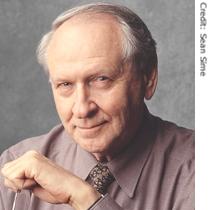You hear women in midlife mention it sometimes: “I
think I’ve become invisible.” If you ever feel that you were overlooked in the queue
at the coffee shop, or by the clerk at the store, it may not be your
imagination. Middle-aged women are
overlooked–by younger men in particular, younger people in general, and even
men our own age who, with society’s blessing, get by believing they’re younger
than we are.
People
see what they’re trained to see. If you’re trained in art, for instance, you might

lose yourself in a gallery, drinking in the details of color and shape, while
someone else sees only pictures. Our culture as a whole is trained to see young
women. There are proportionally far more of them on magazine covers, on TV and
in films, than in the actual population. As a result, we have a citizenry
taught to see the young and ignore the not-so-young. It isn’t conscious; it’s
Pavlovian.
You
can address invisibility by shouting “I was here first!” This will get you your
latté or the key to the fitting room, but you are unlikely to leave the
encounter feeling good about it. I have found it best to deal with invisibility
on the level where it starts, the subconscious. I wish I’d known this when I
was overweight (heavy people can be invisible, too, even young ones), but I know
it now: It’s all in how you see yourself. You change how you see yourself by making your first conscious thought
of the day a remembrance of who you truly are: one of a kind, extraordinary, a
woman with a destiny. Remind yourself of this when you walk into a meeting or a
shop, when you speak with your boss or your teenager, when you greet a
gatekeeper of any sort. When you do, it’s as if a red carpet is rolled out
before you and a subliminal messenger announces your arrival.

Some
people find this easier to do than others. My friend Lane is one of them. Once,
before I moved to New York but was here on a book tour and staying at The Plaza
Hotel, I made a date with her. I was looking forward to afternoon tea in the
Palm Court, like a celebrity or Eloise. To my dismay, Lane, still in a cast
with a broken leg, showed up placidly attired in sweats. My face fell: We
couldn’t have tea with the swells in sweats.
“Sure
we can,” Lane said. “Give me the phone.” I listened in awe to her air of
authority. “See here,” she began. (It made me sit up straighter and she wasn’t
even talking to me.) “I’m in room 1801 and my friend has a broken leg. You
certainly wouldn’t expect her to dress for tea, now would you?” “Oh, no Ma’am,” came the voice on the other
end. “We’ll have a table ready for you immediately.” When we arrived at the
Palm Court, a substantial Saturday crowd was waiting for tables, but we were
led right through, Lane with her sweats and her crutches, me looking as if I
had just observed the parting of the Red Sea.
Lane
has never been invisible and the rest of us don’t have to be either. Regardless
of what the world is trained to see, you can be the exception. It’s all in the
way you see yourself.
Revitalize your life with words: I am one of a kind, extraordinary, a human being with
a destiny.
Victoria Moran is traveling today and this is an excerpt from her book, Younger by the Day: 365 Ways to Rejuvenate Your Body & Revitalize Your Spirit. Victoria will be back tomorrow. In the meantime, keep up with on Twitter.

